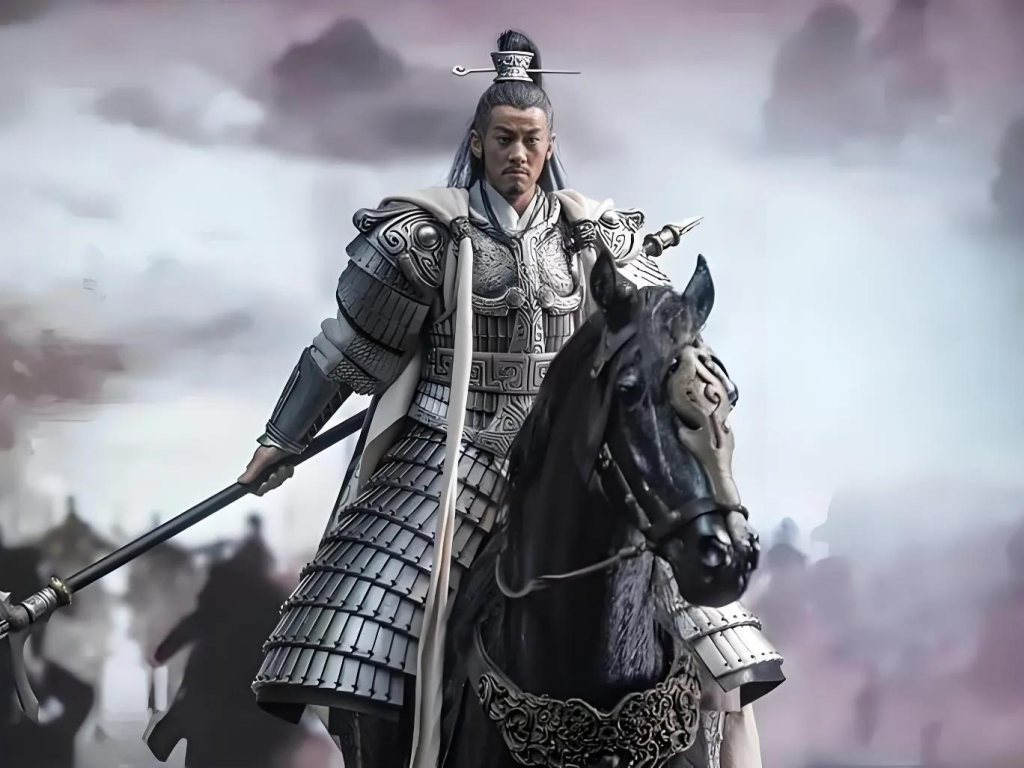Throughout history, the brightest stars often burn the fastest. As we flip through the pages of ancient chronicles, we are captivated by legendary warriors whose heroics changed the course of history. Some turned the tide of war single-handedly, others charged deep into enemy lines, and a few left behind the immortal words: “Though a thousand stand against me, I shall press forward.”
Among countless battlefield legends, three warriors stand above the rest—figures so awe-inspiring that their names continue to evoke admiration even after a thousand years. These men redefined the meaning of “Battle God,” leaving behind tales of blood, steel, and glory that remain etched in history.
1. Xiang Yu: The Overlord Who Rewrote the Rules of War
“I can replace him!” Young Xiang Yu declared as he watched the mighty Qin Emperor’s carriage pass by. His uncle, startled by such audacity, knew that this boy of noble Chu descent was destined for greatness. When Xiang Yu slew a local governor in rebellion, it was the first stroke of a sword that would soon ignite an empire-wide inferno.

The Battle of Julu became his defining moment. Facing 400,000 Qin troops with just 50,000 men, Xiang Yu ordered his soldiers to destroy their own boats—leaving them no choice but victory. The sound of shattering wood echoed through history, and his warriors fought with such ferocity that the Qin army crumbled. The enemy trembled before the sight of a man wielding his legendary “Overlord Spear,” slicing through ranks like a tiger among sheep.
His most astonishing feat, however, came at the Battle of Pengcheng. When Liu Bang led an alliance of 560,000 troops against his capital, Xiang Yu countered with just 30,000 elite cavalry. Under the cover of night, his forces descended upon the enemy, turning the battlefield into a bloodbath. By dawn, 100,000 of Liu Bang’s men lay dead—one of the most stunning underdog victories in history.
Yet, fate was cruel. At the banks of the Wu River, the mighty Xiang Yu met his tragic end. Surrounded by enemies, he chose to die a warrior’s death, slicing his own throat rather than surrender. His final words and unwavering spirit were immortalized in poetry: “To this day, we remember Xiang Yu, who refused to return across the river.”
2. Huo Qubing: The Young General Who Conquered the Steppe
At just 18 years old, Huo Qubing received the emperor’s token of command. With piercing eyes and the heart of a warrior, this young general would soon carve his name into history. His first campaign saw him leading 800 cavalry deep into enemy lands, returning six days later with over 2,000 enemy heads—a feat that stunned even seasoned generals.
His greatest moment came when he spearheaded the Han Dynasty’s expansion into the Hexi Corridor, a crucial gateway to the Silk Road. At the Battle of Gaolan Mountain, he crushed the Xiongnu forces, capturing their sacred Golden Idol, a spiritual symbol of their supremacy.
The defining moment of his legacy was his march to Mount Langjuxu, the holiest site of the Xiongnu. There, standing atop the sacred peak, he carved his name into stone, marking the moment when the nomadic empire finally bowed before Han might. As he raised a goblet, he swore: “As long as the Xiongnu exist, how can I return home?”—a vow that inspired countless warriors for generations.
Tragically, at just 24 years old, the young conqueror succumbed to illness. Emperor Wu mourned his passing with an army’s full honors, and his tomb—shaped like a mighty warhorse—still stands in the Qilian Mountains, forever gazing at the frontier he once conquered.
3. Li Cunxiao: The Invincible Tiger General of the Late Tang
In the dying days of the Tang Dynasty, a young orphan boy was taken in by the warlord Li Keyong. With nothing but his fists, he trained tirelessly, growing into a warrior who could wield heavy iron clubs with ease. He would later earn the fearsome title of “Flying Tiger General.”
His most legendary battle took place at Luzhou, where he led just 500 cavalry against an army of 10,000. Striking under the cover of darkness, he set the enemy camp ablaze, then rode through the inferno like a ghost of vengeance. The stunned enemy forces collapsed, and he personally captured their general.
The most mythical tale of his career—though likely exaggerated—was the legendary “18 Riders Seizing Chang’an.” According to folklore, Li Cunxiao and 18 warriors infiltrated the capital, defeated its guards, and nearly toppled the ruling dynasty in a single night. While historians debate its accuracy, the fact remains that his battlefield prowess was second to none.
However, power struggles sealed his fate. Accused of treason, he was sentenced to the gruesome Five Horses Dismemberment. Even in his final moments, he refused to cry out in pain, cementing his status as a warrior who would rather die than show weakness. His death left even his enemies in mourning, with later historians lamenting: “With Li Cunxiao gone, no man remained to challenge the warlord Li Keyong.”
Legacy: Warriors Who Became Legends
These three warriors—Xiang Yu, Huo Qubing, and Li Cunxiao—lived and died by the sword. Their fearless spirits, strategic genius, and unbreakable wills have left an indelible mark on Chinese history. Even today, their names are whispered in awe, their battles studied, and their legacies honored.
From video games to historical dramas, their stories continue to inspire modern audiences. Whether it’s the concept of “burning the boats” in business strategy, Huo Qubing’s relentless spirit mirrored in military doctrines, or Li Cunxiao’s fearless leadership serving as a model for warriors, their impact transcends time.
They may have perished on the battlefield, but their legends will never fade.

No comments yet.